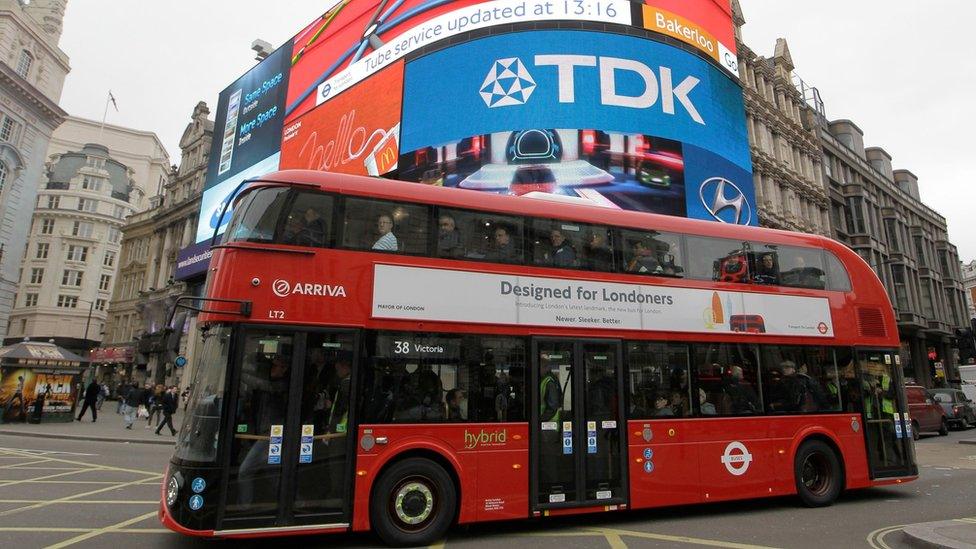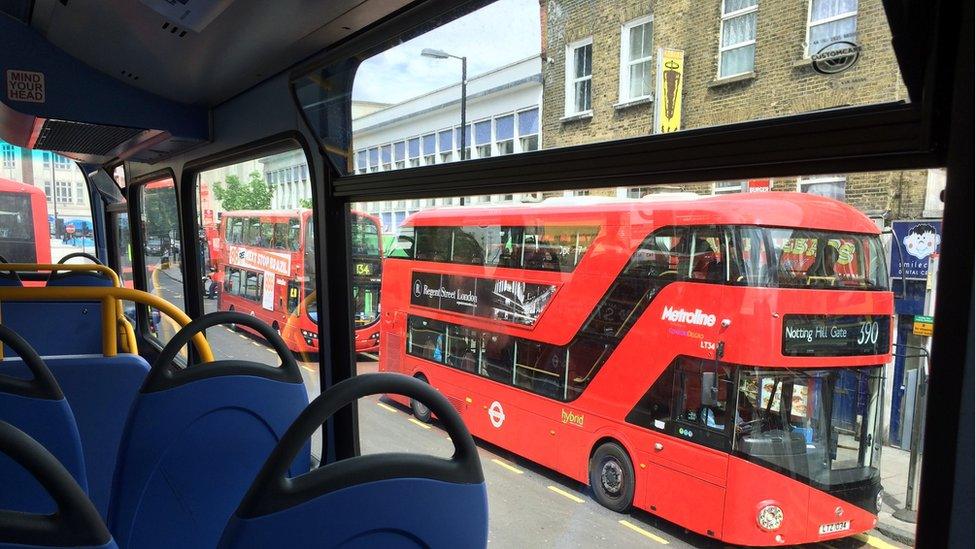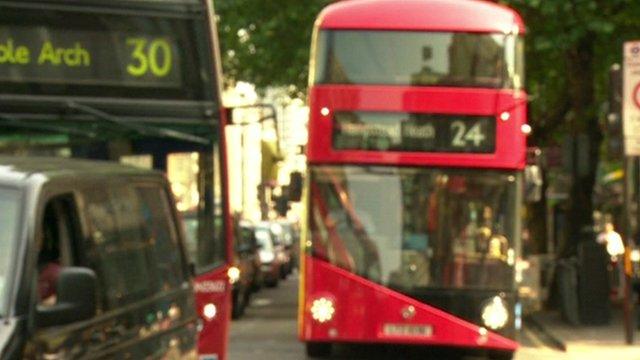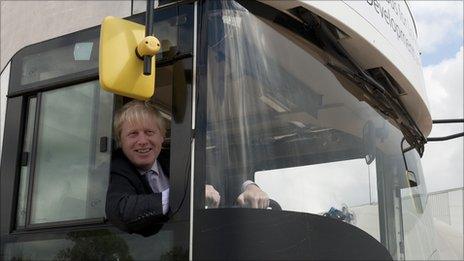Beginning of the end for the New Routemaster
- Published
- comments

After next summer, there will be no more New Routemaster buses ordered
They say politics and transport are deeply entwined and nowhere more so than in London.
Certainly today there was a stark illustration of that, as it has emerged the New Routemaster project (aka the New Bus for London) is in its death throes.
This was the nostalgia-laden flagship project and manifesto pledge of the previous Mayor Boris Johnson.
We will still have the remaining new buses on the streets of London for a while yet, and 195 are yet to be delivered by next summer but I'm told no further orders will be placed.
And there's not exactly a cacophony of opposition at Transport for London (TfL) against that as the future is now electric buses.
Perhaps unsurprisingly, the new mayor Sadiq Khan has shown little time for the New Routemaster.
There are no conductors on any of them as they were laid off last week.
The unique selling point of it - the rear door - is now shut in moving traffic and so the hop-on hop-off platform is defunct.
Also, the hybrid technology, once seen as the future, seems to have been superseded (at least politically) by electric battery technology.
So frankly, without the hybrid engine and the hop-on platform you may as well buy off-the-peg.
Unfortunate breakdown
From day one, opponents of Mr Johnson shouted long and hard that this was a vanity project, saying he should have bought standard hybrids.
TfL has spent £350m on 1,000 of the new Routemasters at £350,000 each, while a normal hybrid was about £300,000.
That is not to say the New Bus was not a fascinating project. It was never dull, but because it was aligned so closely to the previous Conservative mayor it was always vulnerable.
There were numerous problems that kept the London media busy.
I was there when it broke down on the first run in front of London's media - perhaps a portent of doom?
(Incidentally I think the Guardian journalist Dave Hill was the first passenger to use the hop-on platform with a very handy sprint)

Windows had to be added to the buses following complaints over heat
British made
The top deck was incredibly hot in summer - it still is - and there was a stubbornness by TfL not to introduce windows that actually opened. These are now being introduced at a cost of £2m.
Drivers also complained about the power steering and the foreign sales failed to materialise.
However many passengers liked the sleek design. Whenever I asked commuters about them they seemed to genuinely like the buses - faults included.
It was British designed and manufactured.
'No mistake'
There cannot be many buses on the road that came about due to a mayoral pledge and a design competition, plus jumping onto a moving vehicle was a thrill.
The advertising industry seems to enjoy covering them completely in adverts and I'm pretty sure bus spotters liked them.
TfL has now told me it wasn't a mistake.
They said at the time it was best in class and the greenest, cleanest hybrid around.
But politics has moved on and purse strings have tightened considerably.
Ultimately TfL does the mayor's bidding (most of the time) and when you use transport politically, when the winds change - it'll surprise no-one - that the relics of previous regimes are the first on the scrap heap.
- Published5 July 2013

- Published27 May 2011

- Published12 November 2010